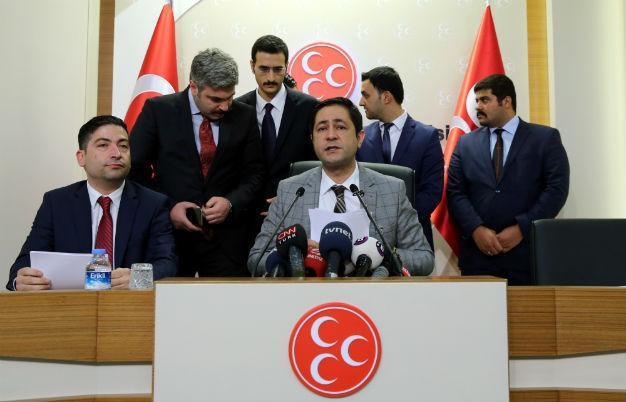Court rulings on congress worsen split in Turkey’s MHP
ANKARA

AA photo
Confusion still reigns over the prospective extraordinary party congress of the Nationalist Movement Party (MHP), as two local courts announced contrasting rulings late on May 13 on whether the convention will take place on May 15.The Supreme Court of Appeals, the highest authority to decide on the fate of the congress, announced earlier this week that it would make a decision within one month. MHP dissidents, including Meral Akşener, have been pushing for an extraordinary congress to be held, which has been repeatedly rejected by long-running party head Devlet Bahçeli.
The Ankara Second Local Enforcement Court accepted the objections of the MHP dissidents on May 13, ruling for the cancellation of another court’s decision in the Gemerek district of the Central Anatolian province of Sivas, which halted the extraordinary party congress process.
Speaking after the decision, the dissidents vowed that the congress will be held on May 15, while the court in Gemerek again stated that it could not be held legally.
“It’s not legally possible for the congress to be held. Necessary security precautions will be taken by the Ankara Governor’s Office and the police,” Yücel Bulut, the lawyer of the MHP headquarters, told journalists, adding that they will appeal against the Ankara court’s ruling to the Supreme Council of Judges and Prosecutors (HSYK).
Two courts in the Tosya district of the Black Sea province of Kastamonu and one in the Gemerek district decided to halt the extraordinary party congress process of the MHP as a precaution, MHP Deputy Chair Oktay Öztürk stated on April 29.
Another Ankara court had previously appointed a three-member panel to organize an extraordinary congress, accepting the demands of dissident MHP members, against which the party HQ had appealed.
Akşener, who has expressed her intention to run for the party leadership, recently said the votes of the MHP would rise to 25 percent if she is elected leader of the party.
“The MHP is not afraid of the [10 percent election] threshold or anything like that and it will not be. The MHP cannot be directed by rumors produced in columns, on TV screens, and on social media,” Bahçeli said at a parliamentary group meeting of his party on May 10.
MHP dissidents have criticized Bahçeli since the MHP’s poor showing in the Nov. 1, 2015 election, in which it only won 11 percent of the vote and 40 seats in parliament.
Bahçeli has led the party for almost two decades since July 1997, but disgruntled MHP members have collected enough delegate votes to hold an extraordinary convention to challenge the party’s leadership.
















